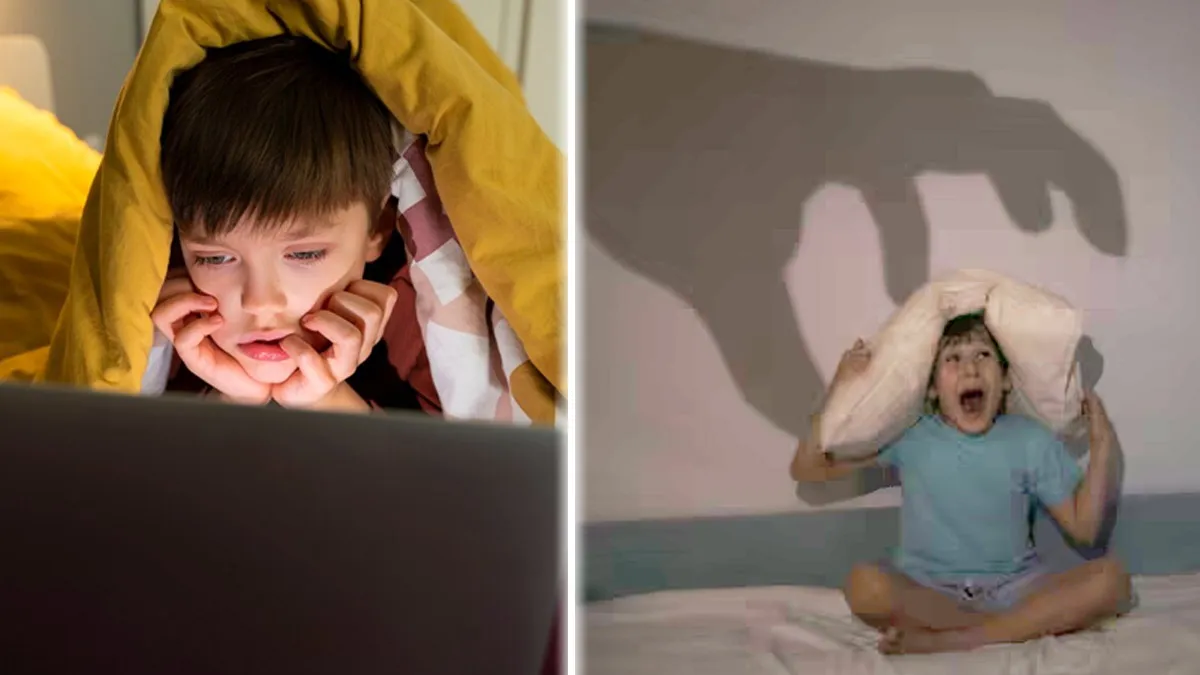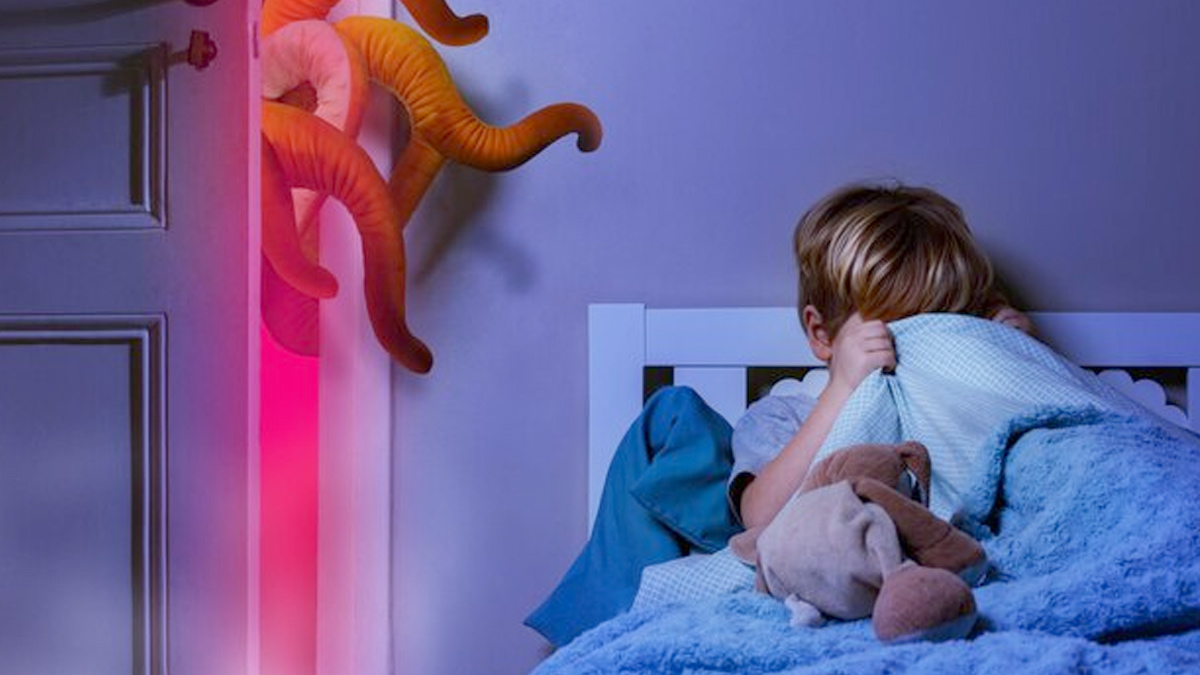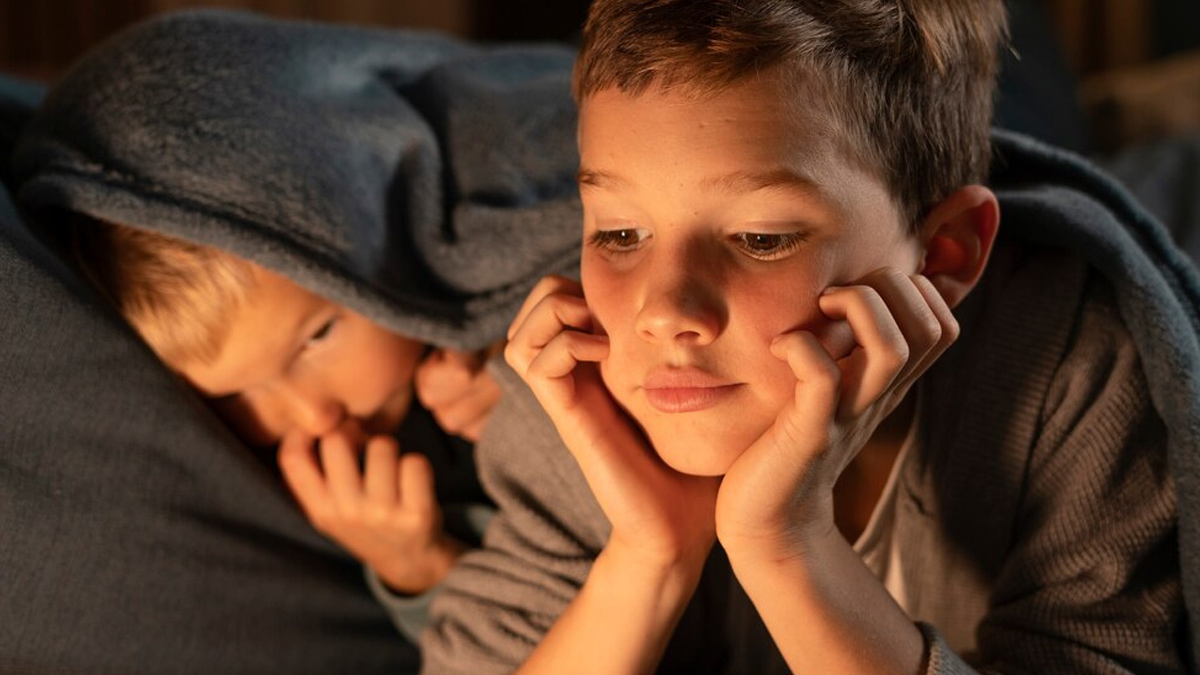
All was fine until last night when your child kept clinging on to you, asking for your phone because they wanted to watch their favourite cartoon. They slept as the video kept playing, until they were jolted awake because they had a scary dream.
Table of Content:-
Night terrors are an unsettling experience for children and parents. And while their exact causes are varied, one modern lifestyle addition is becoming increasingly clear; screen time before bed. The glowing screens of tablets, smartphones, and televisions, while entertaining, may be disrupting your child’s sleep patterns and contributing to night terrors.
RELATED: Help your Child deal with Nightmares
How Does Screen Time Affect Sleep?

Blue light, emitted by screens, has a prominent impact on the body’s natural sleep-wake cycle. This light suppresses melatonin, the hormone responsible for inducing sleep, tricking the brain into thinking it’s daytime. When children use screens in the hour before bed, their sleep is delayed, fragmented, and often shorter than needed.
Research suggests that toddlers exposed to evening screen time take longer to fall asleep and sleep less overall. These disruptions can lead to a build-up of sleep deprivation, which negatively affects growth, mood, and even immunity. Additionally, blue light exposure elevates cortisol levels, creating a stress response in young bodies. This heightened stress can make it difficult for children to relax, increasing the likelihood of night terrors.
The Link Between Screen Time And Night Terrors
Night terrors occur during deep sleep and are often triggered by disrupted sleep cycles. Studies have shown that children who watch television or use devices in dark rooms are more likely to experience nightmares and night terrors.
The overstimulation from engaging content, such as fast-paced games or action-packed shows keeps a child’s brain active when it should be winding down. This overstimulation, coupled with disrupted sleep patterns, creates the perfect storm for night terrors.
A study by the Seattle Children’s Research Institute revealed that children with a television in their bedroom had a higher incidence of sleep disturbances, including night terrors. These findings aren’t just limited to TVs; the same risks apply to tablets and smartphones, making it essential to limit screen exposure before bedtime.
Other Risks Of Night-Time Screen Use
Beyond night terrors, excessive evening screen time can lead to myriad other issues.
- Sleep disturbances and poor sleep quality that affects concentration, mood, and physical health.
- Increased anxiety due to sleep deprivation and overstimulation.
- Sedentary activities like screen time are linked to higher rates of childhood obesity, which can further disrupt sleep.
Tips for Managing Screen Time And Preventing Night Terrors

Creating a healthy bedtime routine can help minimise night terrors and improve sleep quality. Here are some strategies,
- Introduce a Screen-Free Hour Before Bed- Turning off all electronic devices at least one hour before bedtime allows the body to produce melatonin naturally. Use this time for calming activities like reading or drawing or simply talk to them.
- Establish a Calming Bedtime Routine- Consistency is key. A predictable routine, such as a warm bath followed by a bedtime story, signals to your child’s brain that it’s time to wind down.
- Create a Sleep-Friendly Environment- Ensure the bedroom is cool, dark, and quiet. Remove all electronic devices to reduce distractions and temptations.
- Monitor for Potential Issues- Persistent night terrors may indicate an underlying condition like sleep apnoea or a seizure disorder. If your child experiences frequent episodes, consult a paediatrician.
- Make Creative Activities- If your child finds it hard to give up screens, replace them with equally engaging activities like puzzles or bedtime yoga.
RELATED: Beyond Superstition: The Science Behind Bad Dreams And Nightmares
Bottomline
Screen time before bed may seem harmless, but its effects on sleep quality and night terrors are significant. By reducing evening screen exposure and prioritising a calming bedtime routine, parents can help their children achieve restful sleep and avoid the distress of night terrors.
A peaceful bedtime isn’t just about turning off the screens, it’s about creating a nurturing environment where children can unwind, recharge, and wake up ready to embrace a new day.
How we keep this article up to date:
We work with experts and keep a close eye on the latest in health and wellness. Whenever there is a new research or helpful information, we update our articles with accurate and useful advice.
Current Version
